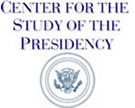That distinctiveness reminds Evan O’Connell, a French American citizen who campaigned for Macron and worked as communications director for Joe Sestak’s 2020 bid, of Macron. O’Connell says Macron won the attention of voters for being obviously different from other candidates, able to draw from both left and right.
That’s a
view backed up by Macron’s advisers, some of whom were even more like Buttigieg
than the candidate himself. Guillaume Liegey is a Harvard and McKinsey alum and
early Macron adviser, who earned his political chops via Barack Obama’s
presidential campaigns. He cast the Macron campaign as a force for openness in
a country accustomed to cloistered, monarchical leaders.
“The
objective was to break down bubbles by listening and engaging on doorsteps. To
force our volunteers out of their bubble,” Liegey said. “By doing that, they
opened a window on France that would never have been opened.”
Martin
Bohmert, from the youth wing of Macron’s party, said the volunteers found
issues and ideas on voter doorsteps that Macron could use to gain inroads
across the political spectrum. “You have to be very careful not to talk to only
one portion of the population,” he said.
The
Upstart Olympics
When
Mayor Pete’s opponents look at him across the debate stage, they don’t see the
proud patriot and gay pioneer his supporters see. They don’t even see the next
Bill Clinton, the last young Rhodes scholar Americans sent to the White House.
Instead, Buttigieg’s rivals see another entitled white guy who thinks he can
cut the line.
And
they’re furious more Democratic primary voters don’t see it the same way. Can’t
voters see that Amy Klobuchar is red-state friendly too, with 25 years more
experience? Don’t we realize Joe Biden filled out presidential primary filing
papers when Buttigieg was literally in diapers, in 1984?
Buttigieg
is that most hated of rivals, an upstart.
Macron
knows a thing or two about that. He began his political rise in 2016 and 2017
in a fugue of hubris. The collective reaction of French political elites
amounted to: How dare he?
Macron
started his presidential quest with no cash and no campaign experience: He’d
never even held elected office. Macron was no outsider though. His CV included
time as a presidential adviser and junior minister.
Like
many Democrat reactions to Buttigieg’s failed runs for Indiana state office and
Democratic National Committee leadership, the message to Macron from France’s
political establishment was “you may be brilliant, but it’s not your turn yet.”
The idea
of President Macron was deeply improbable a year out from his eventual victory.
While a
minister in France’s socialist government, Macron was not a party member.
Working from such a marginal perch, Macron’s new grassroots En Marche movement
was viewed as little more than a distraction for the French from their
depressing national leadership.
In a
political culture that thrives on ideological clashes, Macron’s promise of a
political revolution without ideology made little sense. Combining
truth-telling, American-style optimism and a progressive take on capitalism,
Macron was staking out something new: a radical center.
From
this base camp Macron built a campaign outside of France’s system of public
political funding. The strategy was to mobilize an army of volunteers—more of a
movement than a party—to break through a crowded establishment field.
Macron’s
targets were people who felt scorned for dabbling across the ideological
spectrum, and people who’d been told their professional skills weren’t useful
in a traditional French election campaign.
To keep
his overachieving supporters in the tent, Macron set them free. He put them in
charge of crowdsourcing his platform—knocking on 300,000 doors and conducting
25,000 longer conversations with voters—before even declaring his candidacy.
If that
sounds like Buttigieg’s strategy, you’re not wrong.
While
other Democratic candidates started with a bang and pundits focused on national
polling numbers, save for a breakout CNN Town Hall appearance in March,
Buttigieg operated largely under the radar. There was no Kamala Harris
stadium-style launch rally, no Beto O’Rourke bar-top outbursts or $6 million
daily fundraising hauls. Buttigieg quietly amassed tens of millions from loyal
moderate and gay donors, elevated his husband Chasten’s voice and said yes to
every interview request.
Buttigieg’s
national polling average didn’t hit double-digits until the last week of
November. Like Macron, who sneaked up on the French elite he’d spent years
courting, Buttigieg rose to the top of the Iowa and New Hampshire polls before
anyone could put him back in his place. And it’s Buttigieg who’s still standing
as others drop out of the race, or are relegated from the debate stage.
Not
identical twins
The
similarities between Macron and Buttigieg are not endless.
The
dozen or so Macron advisers and activists POLITICO spoke to all agree:
Buttigieg is not upending the political landscape the way Macron did in France.
“There
is one enormous difference: Macron fundamentally refused even to be called a
centrist, he insisted he was from the left and from the right,” said Antoine
Guery, Macron’s EU-level communications manager. Buttigieg did not have that
luxury in a Democratic primary race that has dragged the entire field leftward.
Macron
also methodically laid out a global vision from the beginning.
When
POLITICO conducted Macron’s first on-stage interview after he launched En
Marche (Forward!) in 2016—his equivalent of a presidential exploratory
committee—the interview took place in English in Brussels, the de facto capital
of the European Union, rather than France.
To try
that idea on for size: Imagine Buttigieg diving into the 2020 campaign via a
Canadian TV interview, in French. From there Macron went on to deliver a series
of grand speeches on the future of the EU, a tradition he has carried all the
way through to his recent assertion that NATO is “brain dead.”
By the
time Macron was facing off against the far-right Marine Le Pen in France’s
presidential runoff vote, the French press wrote of Macronism as a political
philosophy. While Buttigieg toys with ideas like expanding the Supreme Court
bench and has a high-profile “Medicare for all who want it” policy, no one
speaks of Buttigiegism.
Can you
imagine Mayor Pete lifting from Macron’s playbook to deliver a foreign policy
speech in front of the Parthenon in Greece next summer? Or perhaps a mass rally
at Berlin’s Brandenburg Gate as then-candidate Barack Obama hosted in 2008?
Probably not.
What
European officials do see is that Buttigieg’s military experience as a soldier
in Afghanistan could give him the international cachet to rescue a fractured
NATO and build trust over how the U.S. would fight future wars via coalition.
In
office, the same audaciousness that propelled Macron’s ascent seemed to signal
his downfall. With the luxury of a large parliamentary majority to back him up,
Macron allowed himself to appear aloof and imperial, a far cry from the
sleeves-up campaigner he promised France.
While he
evidently enjoyed promising grand EU reforms, when it came to domestic
politics, Macron seemed to take on entrenched domestic interests only from the
right. It was labor unions which had to reform, not employers; it was a wealth
tax that needed cutting, not income tax; and struggling rural families were hit
with a fuel tax to fight climate change, rather than large polluting companies.
Furious
rural voters reacted violently and forced Monsieur le President to ditch his
regal act. His penance was weeks of marathon town hall meetings to reconnect
with the voters who took a chance on him in 2017. Macron’s approval rating
still languishes in the mid-30s, lower than Trump’s and down from a high of 66.
While
Macron was a transformative candidate, in governing he couldn’t escape his
political foundation: Just 24 percent of French voters chose him in the first
round of presidential voting. In the end, he won his presidency not because of
who he was, but mostly because of who he wasn’t: the far-right Marine le Pen.
Buttigieg
might win the White House in much the same way that Macron won the Élysée
Palace—a small core of support attached to a larger bloc of voters holding
their nose simply to kick out Trump.
Once in
office Buttigieg would face different challenges than Macron. He would have
either a wafer-thin Senate majority, or an obstructionist Republican Senate to
deal with. There would be no room for an imperial Buttigieg presidency.
Yet
Buttigieg could still use the same executive power Trump has, the same military
Trump has, in a smarter way. He could pitch a real NATO reform plan (as opposed
to a Trump lecture), much more easily than Macron can pitch new Eurozone rules
to Angela Merkel, to give one example.
Unlike
Macron—or perhaps also because of the lessons Macron provides—Buttigieg has the
luxury of promising a restorative presidency. He can be groundbreaking because
of who is, instead of which party or political norms he smashes along the way.
Even for an audacious 39-year-old president that would surely come as a relief.
https://www.politico.com/news/magazine/2019/12/17/pete-buttigieg-next-emmanuel-macron-084770




